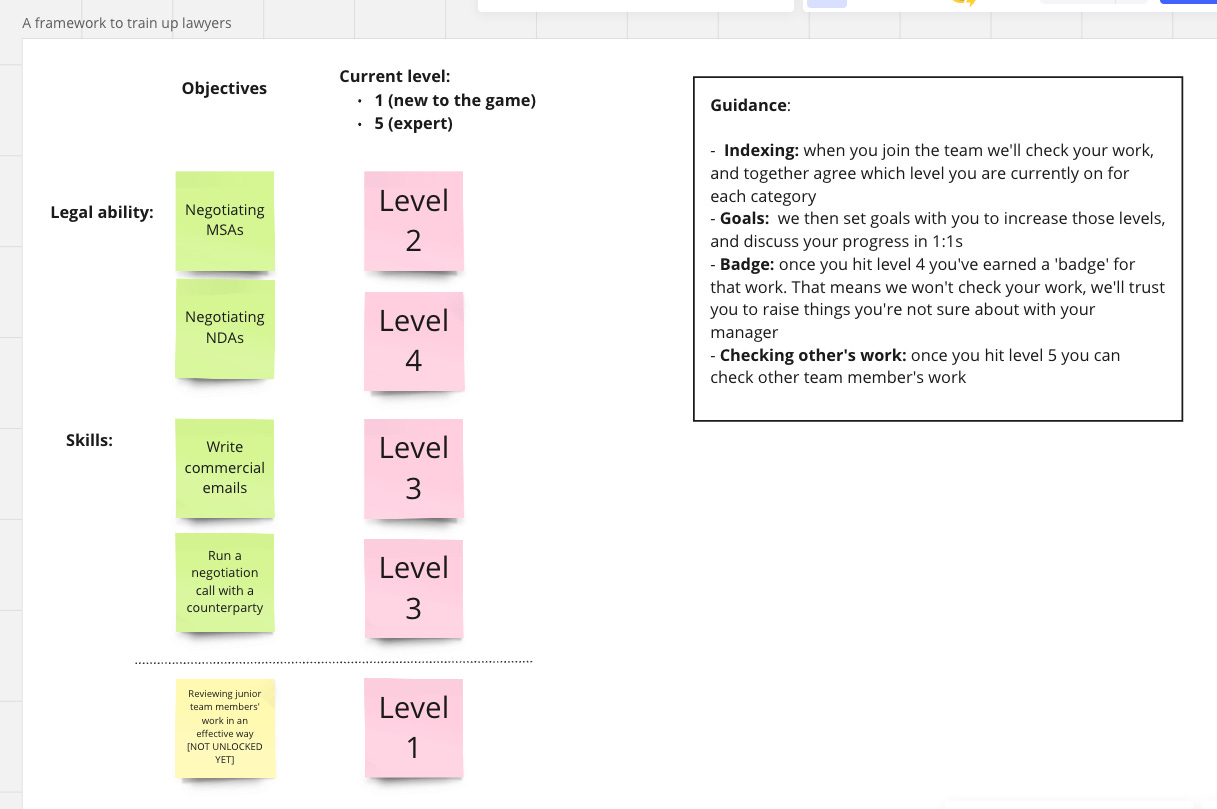When can you let junior lawyers fly solo?
A practical framework that gives clarity to everybody
Managing junior lawyers is hard.
On the one hand you need to check their work. After all, they may miss things, they may not express things in a commercial way, there is poor ‘bedside manner‘ to iron out etc.
I wrote about that in more detail in a previous post: “How to train junior lawyers to write better emails”.
But then you wonder: do I just need to keep checking their work indefinitely? When are they ready to work independently?
Similarly, junior lawyers will wonder how they can grow, where they stand, whether they are improving etc. Being in the dark is not a nice place to be.
Without a transparent framework everything ends up being a bit arbitrary. When you’re too busy you may not check their work, and during slow spells you may check too much. This will feel a bit sloppy to you, and it definitely isn’t a great experience for the people you manage either.
Here’s my stab at a framework:
Here’s how it works:
Set out the objectives (green sticky notes): I split them by Legal Ability and Skills. But you can structure that however you like, it’s basically the competencies you need to see.
Index your team (the pink stickynotes): For each lawyer, work with them to figure out where the stand in terms of experience. There are 5 levels:
Level 1 is where you’d expect a recent graduate to come in.
Level 5 is expert.
It’s critical to message to the team that we’re all on our own journey. The object isn’t to try to have the highest level at indexing. Very hard to make progress if you index too high from the outset!
Training Steps: For each objective where a lawyer wants/needs to make progress, you can now come up with ideas on how to get a lawyer to go from level 1 to level 3.
E.g. for the “writing more commercial emails” objective you can see that earlier post for a few ideas. You can then make that part of their 1:1s and performance reviews as well.
Milestones:
Have clear milestones that show when a lawyer is ready to handle things on their own. E.g. you might say that from level 4 onwards their work won’t be checked. They’re expected to come to you with questions. You may even issue a ‘badge’ for when they’ve hit that milestone. Keeps it fun!
But it’s basically all about making super transparent who can do what, and when. This also clarifies that someone who might be level 4 on NDAs (i.e. can work independently) may not be there yet for other agreement types.
Keep Up the Checks:
Even after lawyers are level 4+ for a given work type, and working on their own, I find it useful to spot check their agreements say once a quarter.
Making it transparent up front that this will happen across the board, hopefully means that the team member won’t feel you don’t trust them when you do the checks.
With a framework like this you’ll hopefully rest easier knowing you are empowering junior lawyers in a safe and structured way. It also gives you something objective to point to in terms of risk management and audit.
Small disclaimer: I’m by no means an expert in people management, so I’d love to hear other approaches or tips and tricks you may have!
Thanks for being here,
Daniel





Very good advice, indeed. Can I translate part of this article into Spanish, with links to you, and a description of your newsletter and you?